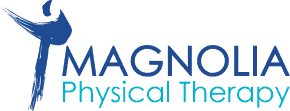Headaches are the third most common pain complaint. We all get them from time to time because they are so extremely common and can be debilitating to the point that they impact a person’s quality of life. If you are someone who deals with headaches on a daily, it can be very isolating and leave you feeling thoroughly exhausted at the end of the day.
There is good news on the horizon for you though: through physical therapy, long-term relief is possible. A skilled physical therapist can help you achieve long-lasting pain relief from stress-related headaches as well as any other pain conditions or ailments that may be contributing to your discomfort.
Keep reading to learn about the different types of headaches, causes for them, and explain how physical therapy can help.
What kinds of headaches are there?
Headaches are common in people of all ages. Some of us experience more of them than others as we age. Many headaches go away on their own and don’t need medical intervention. However, severe headaches that recur frequently and interfere with the quality of life often demand attention from a professional.
You might be thinking, “What? There is more than one type of headache?” Yes! In order to combat your headache pain, you need to be able to identify the type of headache you’re experiencing.
Physical therapists are skilled at diagnosing different types of headaches and can develop simple strategies for pain relief from stress-related headaches. Your physical therapist can help you if you aren’t sure by listening to you describe your symptoms. From there, a comprehensive treatment plan can be created according to your specific needs for pain relief.
Below are 10 common types of headaches, according to Healthline.
- Cluster
- Hormone
- Caffeine
- Migraine or sinus
- Stress (tension)
- Post-traumatic
- Exertion
- Rebound
- Hypertension
Tension headaches – defined
Tension headaches occur when the neck and scalp muscles contract or become tense, and people can start experiencing them at any age, although they’re the most common type of headache in adults and older teens.
Tension headaches happen as a result of poor posture, neck or jaw problems, high-stress levels, fatigue, or arthritis. It’s also possible to experience them if you deal with anxiety or depression.
These kinds of headaches generally start at the back of the head and progress to the top of the head and eyes. You might even feel pain on your face along your jaw and cheeks when experiencing this kind of headache. Many people have compared this type of pain to wearing a hat that is too tight, having their hair pulled back, or having their heads squeezed.
Physical therapy for tension headache pain
Headache pain shouldn’t ruin your day. A licensed physical therapist can conduct a complete physical exam of your body and condition, as well as ask you the appropriate questions regarding your health history. He or she will be able to figure out what type of headache you’re experiencing and determine the best way to combat it and bring you the relief you’re seeking.
During your first physical therapy visit at our clinic, you can expect most of the following:
Tests of your muscle strength
Questions regarding previous injuries to your back, jaw, and head areas
Questions about the types of pain symptoms experienced
Manual therapy to improve the mobility of joints and muscles in your neck
Posture examinations while engaged in different activities
Measurements regarding the range of motion of your shoulders, neck and other areas of the body
If your physical therapist’s evaluation determines a different type of headache, he or she will likely refer you to a different type of healthcare professional for treatment.
Depending on whether your physical therapist determines that you’re dealing with stress-related headaches, you will begin to work with them to complete a treatment plan that is specific to your needs and pain symptoms.
3 ways your physical therapist can help you with tension headaches
The end goal of physical therapy is pain relief, there are some critical things along the way that your physical therapist will help you address so that you can achieve pain relief.
Some of These Include:
- Changing the way you move your neck. Sometimes the smallest movement we make can make our pain worse. Your physical therapist can use manual therapy to stretch muscles in your neck to relieve pain and increase range of motion.
- Posture improvement. Having good posture is key to a lot of things when it comes to your health! How your posture is held during the day significantly impacts your pain levels and the likelihood of experiencing a stress-related headache. Your physical therapist will teach you how to improve your posture for a greater quality of life.
- Improved strength and muscle ability. With physical therapy, you’ll learn exercises to help strengthen the muscles that control your upper back and neck. This can also improve your posture, not to mention you’ll be able to sit or stand for long periods without experiencing pain and discomfort.
Methods of physical therapy treatment for pain relief
With all treatment plans, you can expect to receive information that will supplement your in-office experience. This way you’ll be able to continue strengthening your muscles at home on your own and speed up your recovery time! Make sure if you have questions about exercises that you ask your physical therapist before attempting to complete them on your own, so you can cut down on the risk of injury.
Every individual’s treatment plan is different, but many physical therapists use a lot of the same methods. A few examples are soft tissue mobilization, heat or ice compressions, muscular releases, cervical traction, body mobilization, stretching, strengthening, muscle energy techniques, and McKenzie-based diagnosis and therapy of the spine.
Call our clinic today for more information
Tons of treatment options are available to you at our physical therapy clinic. To learn more or make an appointment, simply contact Magnolia Physical Therapy today. We’re ready to help you experience long-lasting pain relief from stress-related headaches and improve your quality of life!

